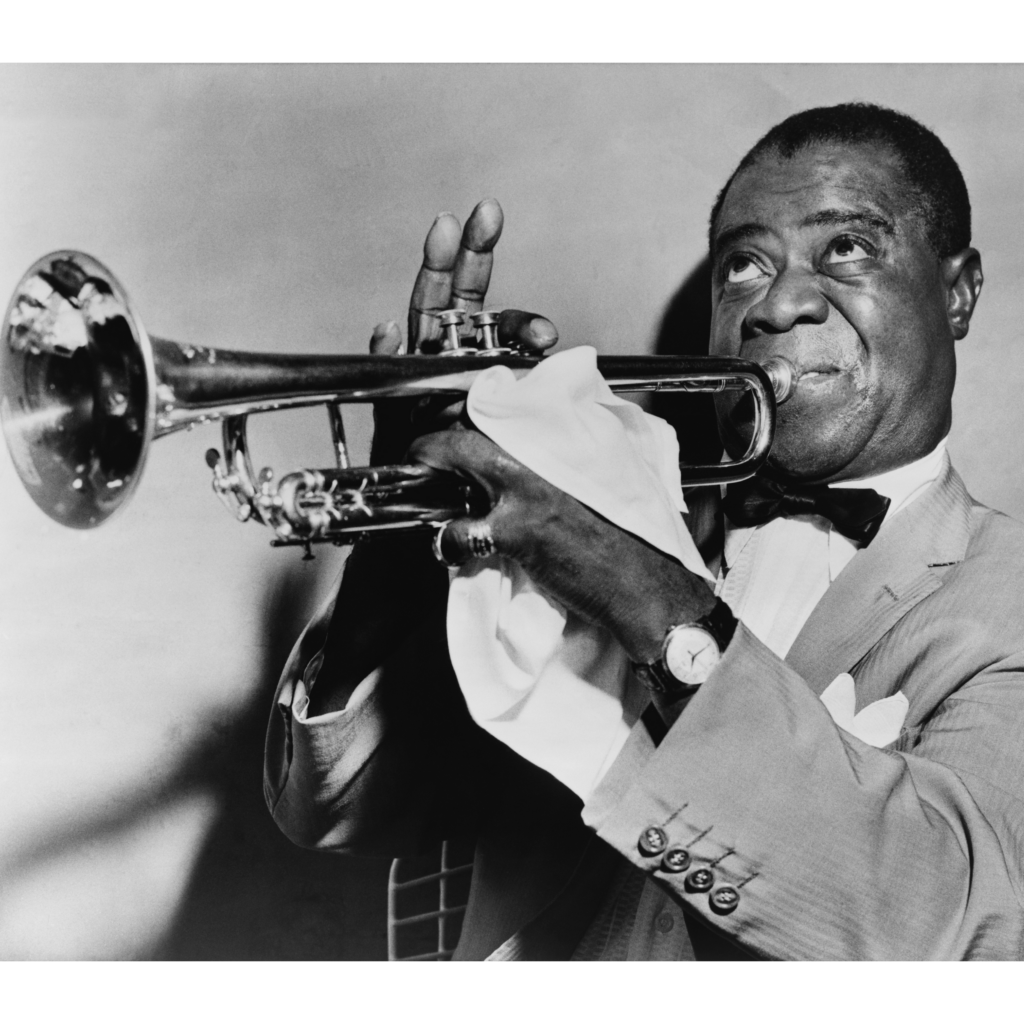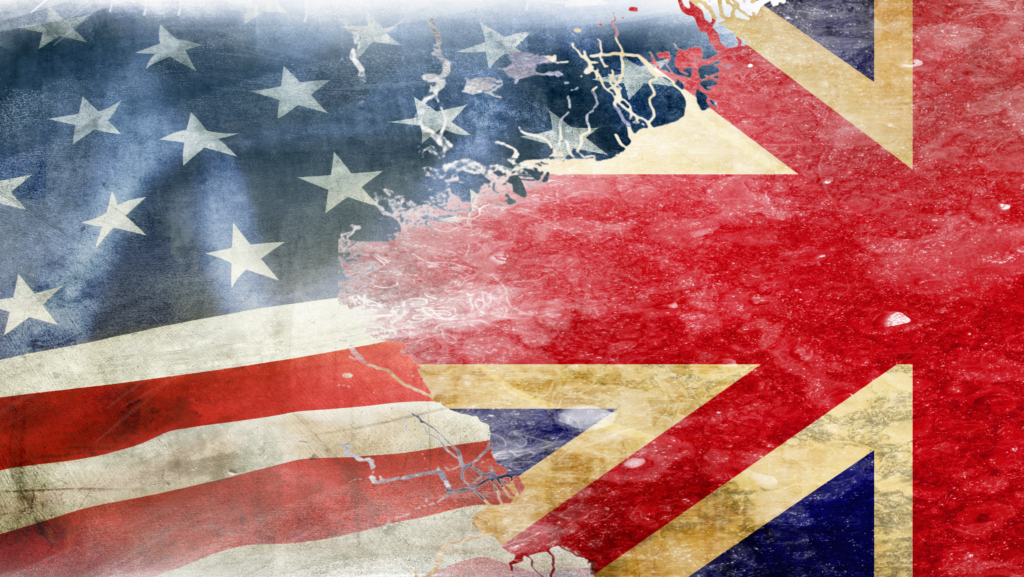Ah, the age-old debate about British English vs American English. It’s like a never-ending game of linguistic ping pong, with words being thrown back and forth across the pond faster than Carl Lewis on steroids.
It wasn´t Bruce Springsteen, but Louis Armstrong and Ella
Fitzegerald, (imagine me singing the following in my
surprisingly interesting voice. If you have never heard
my surprisingly interesting voice before, “Sign Up” at Complete English Club to hear me in my full
splendour), who sang the following –
“You say potato and I say potahto,
You say tomato and I say tomahto,
Potato, potahto, tomato, tomahto,
Let´s call the whole thing off.”

It isn´t just pronunciation and musical tastes that divide the Brits and the Yanks, there are many other differences.
Vocabulary Differences
Let’s start with the basics. In Britain, they call a “biscuit” what Americans call a “cookie.” And don’t even get me started on the whole “chips vs fries” situation. In Britain, “chips” are thick-cut, fried potatoes that are served with fish. In America, “fries” are thin-cut, fried potatoes that come with every fast food burger. It’s like a culinary game of “spot the difference.”
Americans seem to have a tendency to add an extra syllable to words that Brits can say in half the time. For example, in Britain, “schedule” is pronounced “shed-yool,” while in America, it’s “sked-yool.” We can only imagine the frustration of a British person trying to book a “shed-yool” appointment with an American, only to be met with a confused look.
Whilst many words mean exactly the same in both countries there are some amusing differences. And in many instances a totally different word is used for the same thing.
If you don’t want to leave Brits scratching their heads to what you mean, then knowing the differences is a must. For instance asking for ‘gas’ in a petrol station in the UK won’t get you very far. And referring to the Brit´s beloved national game as ‘soccer’ won’t help you make many friends in Manchester.
Spelling Differences
When it comes to the differences in British English and American English spellings even Brits get caught out occasionally. The main difference is that British English keeps the spelling of words it has absorbed from other languages, mainly French and German. Whilst American English spellings are based mostly on how the word sounds when it is spoken.
English was introduced to what is modern day America in the 17th century by the British settlers. Since then the language has evolved and has been influenced by the many waves of immigration to the USA.
Look at the following patterns:
- British English words ending in ‘our’ usually end in ‘or’ in American English:
|
BRITISH |
US |
|
colour |
color |
|
flavour |
flavor |
|
humour |
humor |
|
labour |
labor |
|
neighbour |
neighbor |
- Verbs in British English that are normally spelt with ‘ise’ at the end are always spelt with ‘ize’ at the end in American English:
|
BRITISH |
US |
|
apologise |
apologize |
|
organise |
organize |
|
recognise |
recognize |
- Some nouns that end with ‘ence’ in British English are spelt with ‘ense’ in American English:
|
BRITISH |
US |
|
defence |
defense |
|
licence |
license |
|
offence |
offense |
|
pretence |
pretense |
- In British spelling, ‘L’ is doubled in verbs ending in a vowel plus ‘L’. In American English, the ‘L’ is not doubled:
|
BRITISH |
US |
|
travel |
travel |
|
travelled |
traveled |
|
travelling |
traveling |
|
traveller |
traveler |
- British English words that are spelt with the double vowels ‘ae’ or ‘oe’ tend to be just spelt with an ‘e’ in American English : Although there are exceptions to the rule. For example ‘archaeology’ is spelt in the same way as British English but ‘archeology’ would be acceptable in America but it is incorrect in the UK.
|
BRITISH |
US |
|
leukaemia |
leukemia |
|
manoeuvre |
maneuver |
|
paediatric |
pediatric |
- Some nouns that end with ‘ogue’ in British English, end with either ‘og’ or ‘ogue’ in American English:
|
BRITISH |
US |
|
analogue |
analog or analogue |
|
catalogue |
catalog or catalogue |
|
dialogue |
dialog or dialogue |
- Verbs in British English that end in ‘yse’ are always spelt ‘yze’ in American English:
BRITISH
US
analyse
analyze
breathalyse
breathalyze
paralyse
paralyze
In conclusion, the differences between British and American English are like two sides of the same coin. Both versions have their quirks and unique traits, but in the end, it’s all just a matter of perspective. So, whether you prefer your “biscuits” with a cup of tea or your “cookies” with a glass of milk, one thing is for sure : language is a funny old thing and if you were “Born in the USA” maybe Bruce isn´t that bad after all.
GLOSSARY
All the words in the blog highlighted in RED are explained below :
splendour (n) – magnificent and splendid appearance
Yanks (n) – colloquial term for Americans
the pond (n) – colloquial expression for the Atlantic Ocean
culinary (adj.) – of or for cooking
tendency (n) – an inclination towards a specific characteristic
to scratch – scratching (adj) – to rub with your fingernails
beloved (adj.) – dearly loved
to catch out – caught out (v. past) – detect that someone has made a mistake
settlers (n) – people who set up home in one place
patterns (n) – a repeated decorative design
to apologise (v) – to say sorry for something you have done
pretence (n) – an attempt to make something that is not the case appear true
to manoeuvre (v) – to move skillfully or carefully
to breathalyse (v) – to test how much alcohol a person has consumed
quirks (n) – a peculiar aspect of someone´s character
traits (n) – a distinguishing quality or characteristic belonging to someone
